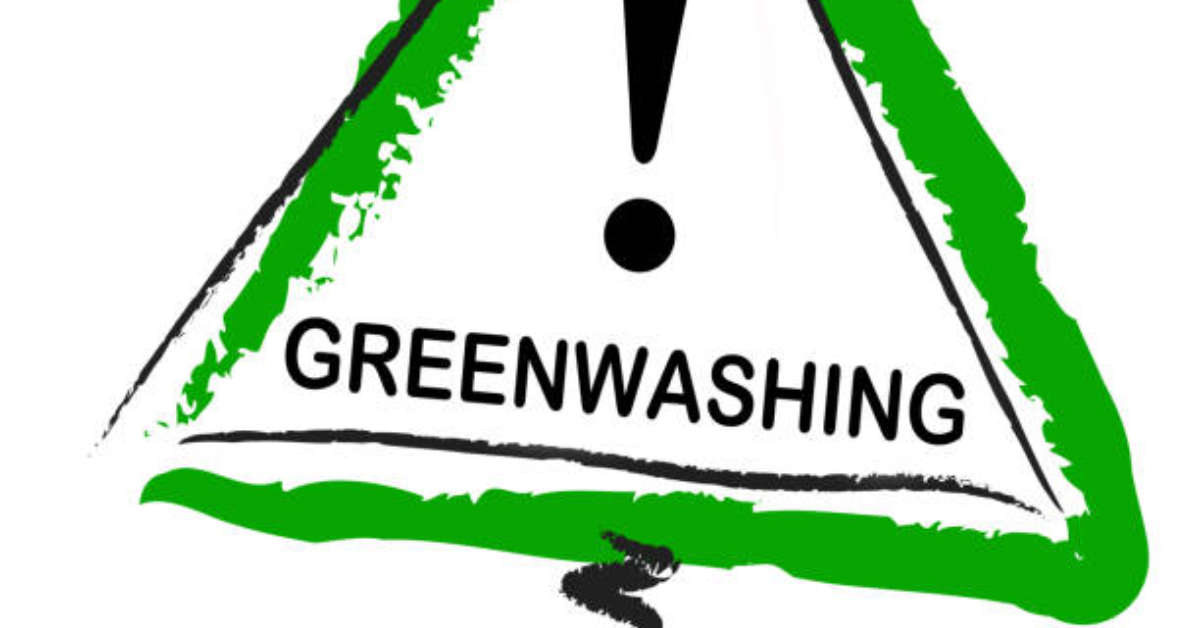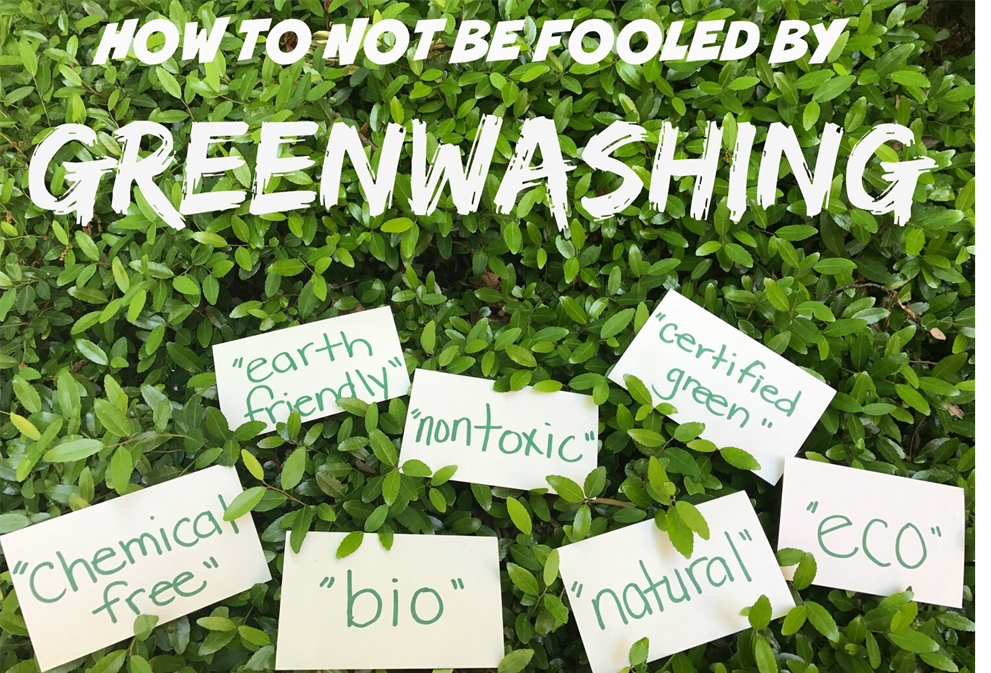Contact: +91 99725 24322 |
Menu
Menu
Quick summary: Discover the essential strategies to avoid greenwashing and genuinely promote sustainability in your organization. Explore innovative sustainability solutions that ensure transparency, accountability, and authenticity in your green initiatives. Learn how to navigate the complexities of sustainability claims and build a trustworthy reputation in the era of conscious consumerism.

The surge in sustainability consciousness among consumers has fuelled the growth of the greenwashing in the sustainability market. As a result, Sustainability Marketing has emerged as a potent strategy for gaining a competitive edge. Many companies actively communicate their sustainability efforts to align with this trend and cater to consumer demands. However, this surge has also given rise to misleading or unsupported claims, commonly referred to as Greenwashing.
According to a study by Sustainable Brands, 85% of consumers are more inclined to purchase from companies with a strong sustainability reputation compared to neutral ones.
As sustainability takes center stage in consumer preferences, companies are increasingly recognizing the importance of genuine environmental efforts. However, with this surge in eco-consciousness comes the risk of greenwashing – the deceptive practice of presenting a misleadingly positive image of a company’s environmental initiatives.
To navigate this challenge, businesses are turning to robust supply chain traceability solutions. In this blog, we delve into the significance of supply chain transparency in avoiding greenwashing and ensuring authenticity in sustainability claims. Join us as we explore how traceability becomes a powerful tool in fostering genuine environmental responsibility across various industries.
Greenwashing poses significant negative consequences for both consumers and the broader sustainability landscape.
Therefore, ensuring reliable sustainability claims is vital to maintaining the credibility of sustainability initiatives, fostering informed consumer choices, and driving genuine sustainability practices.
Greenwashing refers to the deceptive practice of making false or exaggerated claims about the environmental benefits of a product, service, or organization. It involves presenting a misleading perception of environmental responsibility to deceive or mislead consumers.
Climate greenwashing refers to the practice of misleadingly presenting an organization, product, or service as environmentally friendly or sustainable in relation to climate change. It involves making exaggerated or false claims about the environmental impact or carbon footprint of a company’s activities, products, or services.
Greenwashing takes advantage of the surging demand for environmentally friendly products and services, which are claimed to be more natural, healthier, free of chemicals, recyclable, or less wasteful of natural resources.
In the contemporary landscape, both brands and consumers exhibit a keen interest in understanding the origins, composition, and environmental implications of products. This emphasis on transparency fuels the reliance on sustainability claims, shaping the decisions of both businesses and consumers in the realm of product choices.
Claims about sustainability may manifest on various platforms such as product labels, packaging, advertising materials, promotional content, and other marketing mediums. These claims can be conveyed through diverse means including words, symbols, emblems, logos, graphics, color-coded systems, and product brand names.

Greenwashing can take various forms, including:
Participating in one or more forms of Greenwashing can result in significant repercussions. These consequences may include legal actions, substantial financial penalties, the loss of investments, or the removal of products from the market. Furthermore, the brand’s reputation may suffer severe damage, leading to a loss of public trust in their products or future communications. When a company faces charges or suspicions of Greenwashing, regulators and industry watchdogs are likely to intensify scrutiny and inspections of their claims for potential fraud.
These examples highlight how greenwashing can mislead consumers and create a false perception of environmental responsibility. It is essential for consumers to be vigilant, look for credible certifications, and demand transparency and accountability from companies to avoid falling victim to greenwashing tactics.
The Ecolabel Index reports an extensive array of over 80 commonly utilized reporting initiatives and methods specifically for carbon emissions. Additionally, there are more than 200 active environmental labels within the EU and a staggering 450 globally.
Moreover, reliable sustainability claims provide transparency and accountability to stakeholders, including investors, employees, and regulators. They ensure that organizations are held responsible for their environmental impact and progress towards sustainable practices. This transparency enhances overall corporate governance and fosters a culture of sustainability throughout the organization.
Reliable sustainability claims are crucial for building trust, differentiating from greenwashing, and driving positive environmental impact. By accurately communicating their sustainability initiatives, organizations can establish themselves as leaders in sustainability, earn the loyalty of consumers, and contribute to a more sustainable future.

The crucial measure to prevent Greenwashing is to possess reliable, auditable, and transparent data supporting your sustainability claims. This data should not solely originate from the company but must encompass information from the entire value chain.
Addressing the risks and conducting thorough due diligence on all suppliers require the essential elements of supply chain traceability and transparency. Implementing a traceability system is crucial, enabling stakeholders in the supply chain to share data securely while safeguarding sensitive information.
One key strategy to ensure reliable sustainability claims is to establish robust sustainability reporting practices. This involves collecting and analyzing data on environmental performance, social impact, and governance practices. Organizations can adopt recognized frameworks such as the Global Reporting Initiative (GRI) or the Sustainability Accounting Standards Board (SASB) to guide their reporting process. Additionally, engaging independent third-party verifiers can enhance the credibility of sustainability claims by providing objective assessments of the organization’s sustainability performance.
Transparency and clear communication are essential for reliable sustainability claims. Organizations should communicate their sustainability goals, targets, and initiatives in a transparent and accessible manner. This includes sharing information on key performance indicators, progress reports, and milestones achieved. Clear communication helps stakeholders understand the organization’s commitment to sustainability, track its progress, and hold it accountable for its claims.
Engaging stakeholders is crucial for ensuring reliable sustainability claims. Organizations should actively involve employees, customers, investors, and local communities in their sustainability efforts. This can be done through stakeholder consultations, feedback mechanisms, and collaboration on sustainability initiatives. Transparently disclosing information about supply chain practices, such as sourcing, labor conditions, and environmental impacts, is also vital. By fostering transparency throughout the supply chain, organizations can ensure the integrity of their sustainability claims and address potential risks of greenwashing.
Regular audits and evaluations of sustainability practices are essential to ensure ongoing compliance and improvement. Internal and external audits can verify the accuracy and reliability of sustainability claims by accessing data collection processes, measurement methodologies, and adherence to sustainability targets. These audits can help identify areas for improvement, address gaps in performance, and strengthen the organization’s overall sustainability strategy.
By implementing these strategies, organizations can enhance the reliability of their sustainability claims, demonstrate their commitment to transparency, and earn the trust and confidence of stakeholders. Reliable sustainability claims not only contribute to a more sustainable future but also differentiate organizations from greenwashing practices and drive positive change across industries.
TraceX blockchain traceability solutions play a pivotal role in combating greenwashing in sustainability and carbon management. By leveraging blockchain technology, TraceX ensures the integrity and transparency of data throughout the supply chain. This helps in substantiating sustainability claims with verifiable and auditable information, leaving no room for misleading practices. The decentralized and immutable nature of blockchain ensures that the data is tamper-proof, providing confidence in the accuracy of sustainability metrics. With complete visibility into the entire value chain, stakeholders can verify the authenticity of environmental claims, thereby preventing greenwashing and fostering a genuine commitment to sustainability.
DMRV (Digital Monitoring, Reporting, and Verification) solutions play a pivotal role in addressing greenwashing in carbon markets by providing transparency, traceability, and verifiable data.
With cutting-edge technology, TraceX ensures accurate and transparent tracking of carbon-related activities throughout the supply chain. Its blockchain-based system provides immutable records, ensuring data integrity and minimizing the risk of greenwashing. Real-time monitoring, third-party verification, and adherence to industry standards make TraceX a robust tool for companies committed to authentic sustainability practices. By promoting traceability and accountability, TraceX DMRV solutions empower organizations to build trust, meet regulatory requirements, and make genuine strides toward a sustainable future.
Understanding greenwashing is crucial in today’s world where consumers are increasingly seeking sustainable and environmentally responsible products and services. Greenwashing, the deceptive practice of making false or exaggerated claims about environmental benefits, poses a significant threat to genuine sustainability efforts and consumer trust. Recognizing greenwashing is essential for consumers to make informed choices and support organizations that genuinely prioritize sustainability. It is also vital for organizations to avoid greenwashing and establish reliable sustainability claims. This involves implementing strategies such as robust sustainability reporting, third-party verification, clear communication of sustainability goals and progress, engagement with stakeholders, and regular audits of sustainability practices.
As the awareness of sustainability grows, companies are increasingly striving to meet the demand for eco-friendly products. In response, they incorporate sustainability claims into their offerings to demonstrate environmental responsibility. Yet, ensuring the credibility of these claims is challenging, exposing companies to the risk of greenwashing—whether intentional or unintentional, particularly within intricate global supply chains. To mitigate these risks and enhance the trustworthiness of sustainability claims, companies can implement a supply chain traceability and transparency system. This empowers them to make stronger and substantiated sustainability assertions backed by transparent and reliable data.
